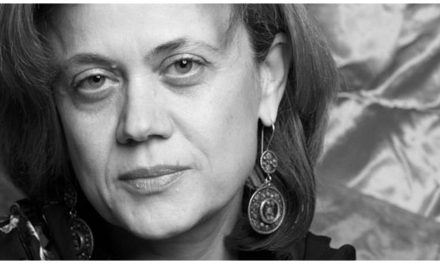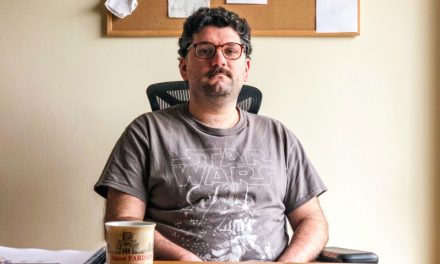Aggelos Moutafidis was born in Thessaloniki in 1990. He studied Psychology and Comparative Literature at the Aristotle University of Thessaloniki. He has been working as a translator and book editor since 2018.
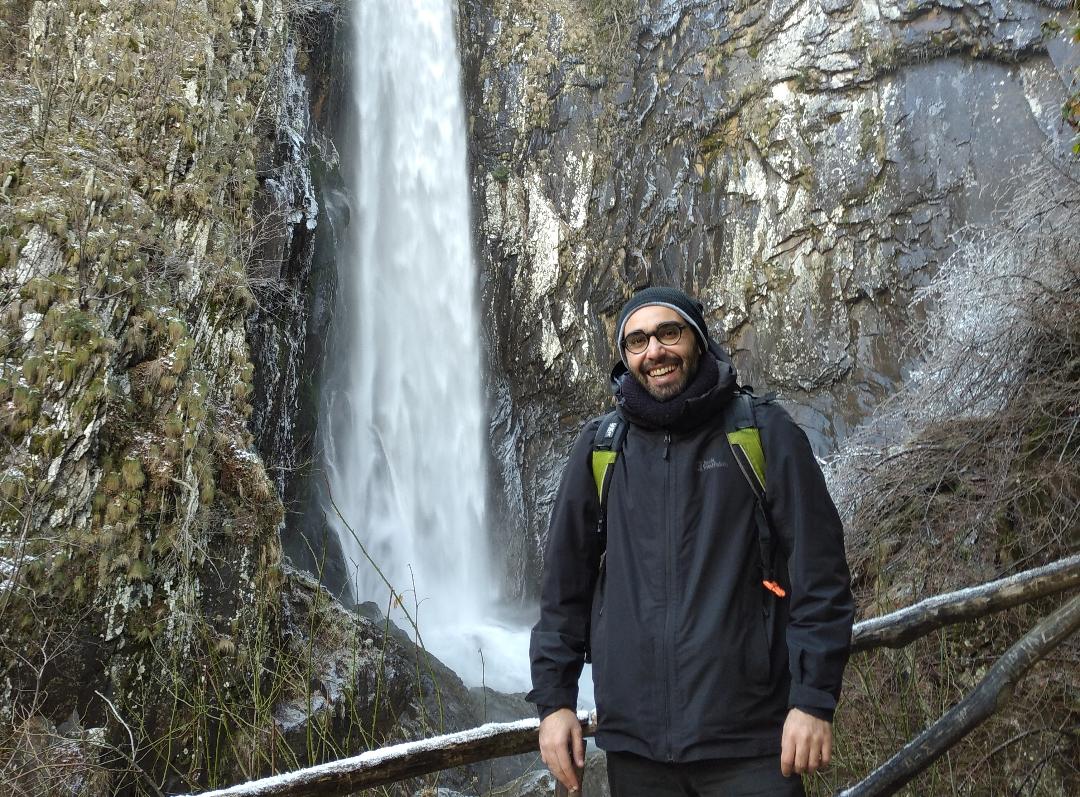
Among your latest translation ventures is “Les impatientes” by Djaili – Amadou Amal (Thines, 2024) (Prix Goncourt des lycéens 2020). Tell us a few things about the book and the translation process.
Ιt is a polyphonic novel that highlights the impact of the institutions of forced marriage and polygamy on the suffocating religious environment of the Peul people of northern Cameroon. Three women of different ages, readings of the world and attitudes towards life, tell, each from her own perspective and in her own voice, their personal story of being trapped in a social structure where aspects of ‘Western modernisation’ coexist with the most extreme forms of traditionalist and patriarchal imposition.
While the book closely follows the dead ends of each of the three narrators, whose lives intertwine and are jointly heading in trajectories of lonely tragedy and only silent resistance, the end of reading leaves us with that creative wonder that can turn the absence of redemption into the possibility of action. And that, I think, is the main virtue of the book: It reveals a reality where women’s lives seem doomed, but this void of emancipatory initiative prompts the reader, and in particular the white Western reader, to reflect on his or her place in the global system of social, gendered and racialized inequalities, but also on the “privilege” of belonging to a part of the world where diverse liberations are at a much more advanced stage compared to the “historically subjugated” territories of the planet.
The translation process was quite challenging: it was the first literary book I was asked to translate, which at the same time referred to a reality very different from our European, Christian and monogamous imaginary. It is also a cultural environment that is completely unfamiliar to us, with institutional and customary structures for which there are no exact equivalents in our dictionaries. Finally, it refers to an experience I have not encountered and will probably never encounter – that of black African women, members of polygamous families. Therefore, I had to invent myself as a literary translator working with a text that raised some pretty forward issues of localization and called on me to flesh out voices I hadn’t heard. Whether I succeeded I have no way of knowing, but the book’s favorable reception offers me good enough reason to feel optimistic.
More generally, African literature, or rather literature written in the languages most accessible to us by people of African descent, is gaining ground, which is greatly enriching our reading practice.
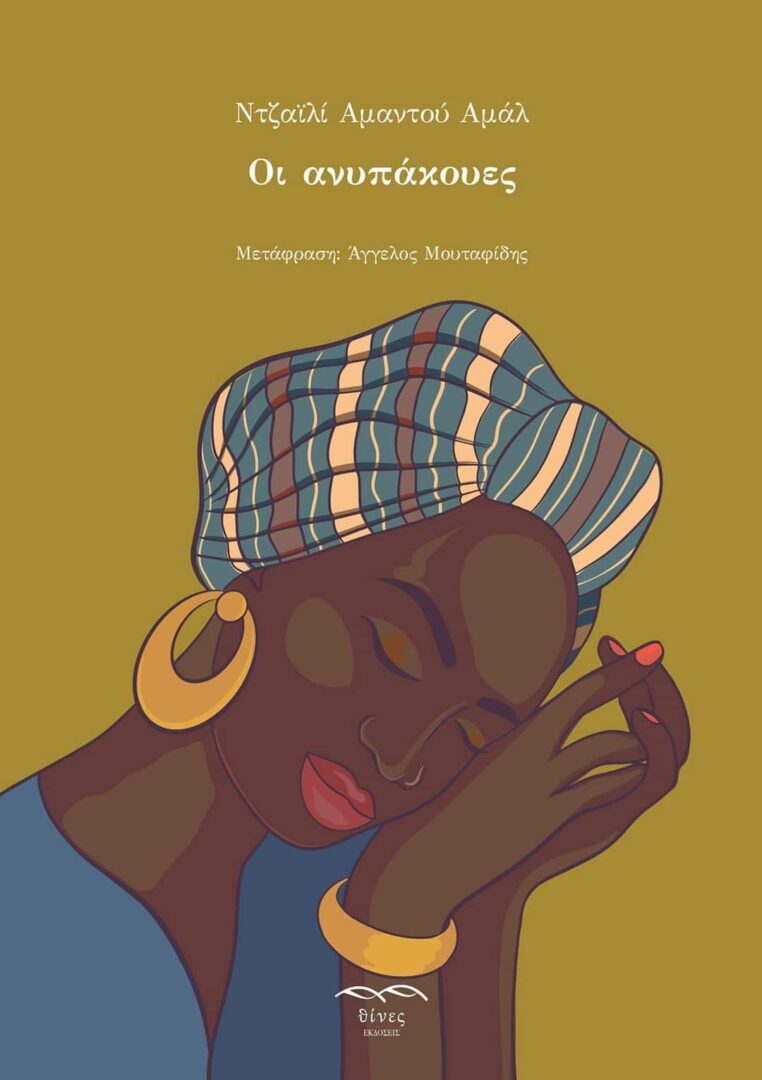
You have translated works by major writers and scholars such as Claude Lévi – Strauss, Thomas Piketty, Guillaume Faburel, Serge Audier, Robert Boyer, etc. Which have been the main challenges you have been faced so far?
I started translating mainly essays and studies, influenced by the readings and stimuli of my student and postgraduate years. I found that the greater discipline of critical and scholarly discourse offered me greater security in my first steps in the translation field, although I have always been more attracted to texts at the intersection of essay and literature. What I was most interested in, of course, was literature itself, but it was precisely because my entry into professional translation was associated with theoretical texts that it took me time focus on literary works.
Yet, I consider that whatever the type of text one is called upon to translate, whatever the translation particularities that a theoretical or literary text may have, there is one thing that remains the same: the text binds you and, at the same time, opens up a range of possibilities. Not infinite, but enough to produce a space of creative freedom.
At this intermediate level between commitment to the original text and creative potential, the translator is called upon to make choices – mainly linguistic and stylistic- that will leave their indelible mark on the final text. In theoretical texts, the challenges mainly concern the translation of terms not yet established in the target language as well as consistency in conceptual distinction. In literary texts, they have more to do with style and rhythm – hence the missteps in such texts can be more “dramatic” for the reader, as style is a thread that runs through the book as a whole.
In my case, there was an additional difficulty on top of the challenges concerning the function of translation in general; that is, as a new translator, I had to overcome the shyness, or even the fear, inevitably caused by the mythopoetic influence of certain names (such as Levi-Strauss) and discover in practice, as that is the only way, the equation between (necessary) respect and (even more necessary) disrespect for the texts. Especially the latter is a constant challenge, from which one never escapes.
Most scholars reckon that the content of a book cannot be separated from the particularities of the language that gave it shape. In this respect, where does the role and responsibility of the translator lie? Can translation ever be unethical?
By definition, translation is a profane act since it violates the “sanctity” of the original. This “desecration”, however, is governed by rules: the text that is “violated” is at the same time reconstructed in another language with the intention of remaining intact on a semantic level. It is sealed by multiple layers of linguistic, cultural and emotional specificity, but this specificity is indeed transferable to other languages and cultures, even if things are inevitably ‘lost’ in translation. It has been encoded in a particular language system, but is cut off from it in order to be transferred to a second, different linguistic environment where it is called upon to re-acquire the meaning it carried from the outset.
This mainly semantic correspondence creates the need for a translation compass, deviations from which can lead to serious arbitrariness. Translators are not committed in religious terms to the original. They are not priests of any religion, because translation is primarily a critical act. But neither are they unrestrictedly free, given that their freedom is subject to the constraints of the text. This condition forces them to practice a kind of “faithful betrayal”, which in my opinion is the only realistic translation ethic: the translator is constantly called upon to remain faithful through infidelity or to become infidel in order to remain faithful to the original. The myth of ‘being faithful’ implies that there are ideal equivalences between languages – something that is not true, and which every new translator tends to believe nonetheless. In the translation process, one realises that sometimes the best way not to ‘betray’ the original is not to be afraid of ‘moving away’ from it.
Therefore, I would say that, if there is an unethical practice in the act of translation, it consists in overdoing one of the two poles of this pendulum: the anxiety to remain “faithful” is usually to the detriment of the reader to whom you are addressing, while taking excessive liberties is a kind of breaking of the contract that binds you to the original. What is needed is a delicate balance between faithfulness and unfaithfulness, mastered through experience.
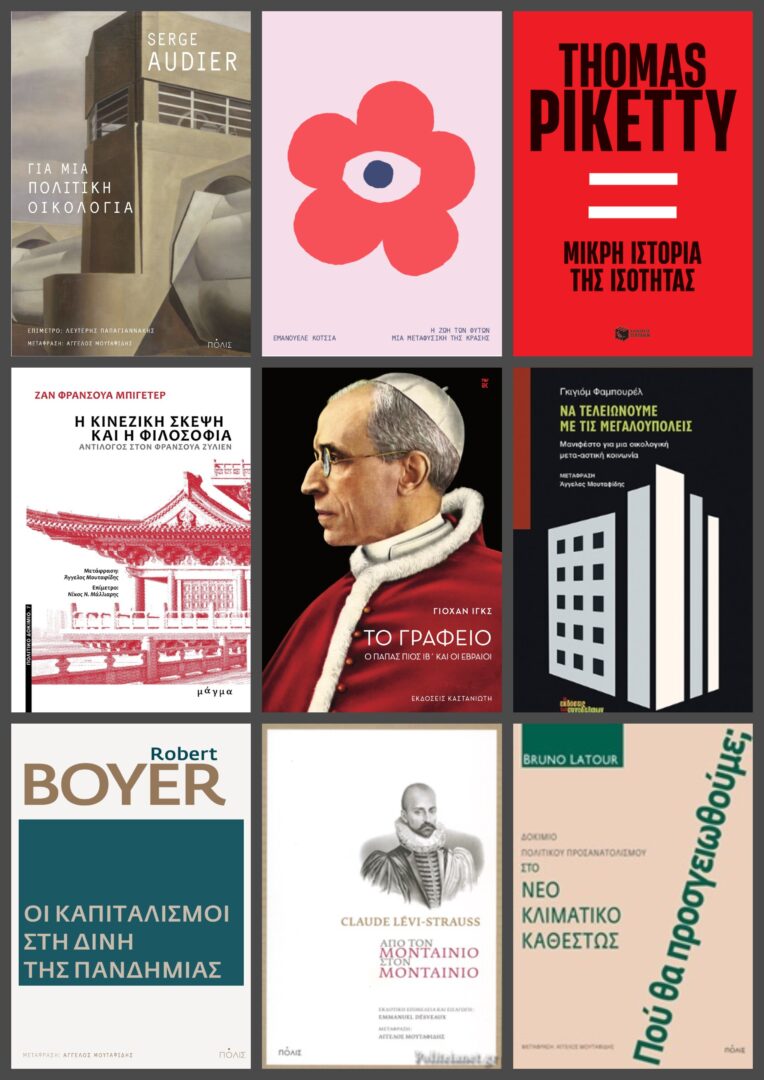
Despite their arduous and pivotal work, translators usually remain invisible: their names are often not even mentioned, while they are ignored by critics and readers. What could be done to bring translators to the forefront?
A thorough and systematic critique of translation in the wider public sphere – with the exception, perhaps, of university departments of Translation Studies – is, in my opinion, almost impossible, because it presupposes a huge commitment of time and resources which, realistically speaking, will never be spent on such a “luxurious” practice. The only thing that can be judged is whether, as it were, a translation ‘flows’, i.e. whether it creates an environment of seamless reading – which is not necessarily critical of the quality of the translation itself, but mainly of whether the translator is an apt user of the target language.
As for the visibility of translators, progress has certainly been made: their names are most often on the covers, while a large part of the so-called systematic readers navigate the publishing landscape on the basis of their appreciation of certain translators. Even the typical paragraph we are accustomed to reading in book reviews about the translator’s contribution, though it may not carry critical weight, is indicative of the awareness that the translator’s work should be acknowledged.
There is something else, however, that I believe needs to change. Whereas in the past the work of the translator was systematically downplayed as if translation came about by magic, today I feel that a reverse myth is tending to emerge: the myth that (good) translation is the product of a single gifted and talented person who is something of a master of a rare art. The reality is much more prosaic and much more complex. No translation is an individual affair. Every translated book results from the collaboration of a network of people, so it is always the product of collective work. I think that this issue is hardly discussed. The signifier ‘translator’ usually encapsulates a range of work to which other people have certainly contributed, often decisively.
At this point it’s worth mentioning that the real silent players in the book chain are the editors and proofreaders, whose work as actual contributors to books is largely overlooked. There are translations that could not be published without the intervention of an editor, and there are others that need little intervention. In both cases, however, four or six eyes are better than two, and the belief that translation is an individual process is, in my opinion, damaging.
The competitiveness of certain translators towards editors is indicative of a translation narcissism that further exacerbates the already large, and to some extent expected, distance between book contributors – which prevents the creation of a collective identity, and by extension a working culture of collegiality, that could, in turn, contribute to claiming better conditions for the whole sector. I think this is something that could bring about tangible change, and should thus be one of the key stakes for the industry.
Could translation contribute to a better understanding between cultures and translators act as cultural ambassadors between countries?
The term “cultural ambassador” may sound a bit pompous, or, in any case, embellishes some unpleasant aspects of the translation profession; yet, in essence, that is what a translator does: he or she acts as an intermediary between cultures, making the increasingly globalised world familiar to a large number of people. Understanding between cultures and countries is of course a multi-faceted issue, which does not only depend on the goodwill of cultural mediators and the noble ideal of “Weltliteratur”. Translation should not be understood as a field from which conflict is absent: we translate texts which are unpleasant to us or which conflict with our common humanity so as to increase our awareness and sharpen our senses, and to become aware of historical, political and cultural gaps which require common reflection. So, yes, translation certainly contributes to intercultural understanding, as long as the term is not used to describe a “noble bridge of good” but is understood as an essential creator of intellectual facts, as an act that makes potentially common all, even the most odious, products of the human spirit. That is, which makes the truth about which we agree or disagree more and more multifaceted and complex.
*Interview by Athina Rossoglou
TAGS: LITERATURE & BOOKS | READING GREECE


